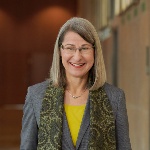With the help of technical expertise, precision work and passion, the Computer Museum at the University of Stuttgart has become an important institution in the history of computer science. For these efforts, the museum has been honored with the Klaus Tschira Medal, awarded by the Gesellschaft für Informatik e.V. (GI) in collaboration with the Klaus Tschira Foundation. The medal, named after the SAP co-founder, is awarded every two years for special services to the use and further development of computer science methods in various fields of application. This year, for the first time, the award goes to an institution rather than a person.
Historic machines in action
From a replica of Schickard's calculating machine to the first commercially produced computer mouse, the Telefunken RKS 100, and the oldest functioning computer in Germany—a first-generation magnetic drum computer—along with a fully operational punch card computing center, the exhibits at the Computer Museum at the University of Stuttgart do more than just showcase technological milestones. Almost all of the exhibits are fully functional, offering visitors a unique, hands-on experience that brings the history of computing to life in an engaging and interactive way. The museum team will be honored with the Klaus Tschira Medal at the INFORMATIK FESTIVAL 2024 for this contribution to preserving the cultural history of computer science.
Getting people excited about computer science
The dedicated team behind the collection includes Klemens Krause, Christian Corti, Katja Stefanie Engstler, Ralph Braun, Luca Moczko, Martin Kurtz, Michael Wegmer, Eva Farkas, and Martin Peters. Klemens Krause and Christian Corti will be presented with the award on September 25, 2024, in Wiesbaden. They built up the museum, uncovering and restoring rare, one-of-a-kind exhibits, and restoring their function. This dedicated team demonstrates an extraordinary commitment to restoring and preserving exhibits, regardless of their condition, ensuring that even the most challenging pieces are made fully operational. "By sharing their efforts and successes, they inspire people of all ages to explore and appreciate the field of computer science and its rich history," says Christine Regitz, President of the German Informatics Society.
Knowledge for a broad audience
“I would like to congratulate the founder of our computer museum, Klemens Krause, and his entire team on this award,” explains Dr. Simone Rehm, Vice Rector for Information Technology at the University of Stuttgart. "For many years, the museum has been a compelling example of how the history of technology can be made accessible and how effective science communication can reach a wide audience in the digital age." The Stuttgart-based “bit archaeologists” don't just restore historical computers and show them to visitors. They also pass on their knowledge to a wide audience. In addition to guided tours for schools, adult education centers and companies, the museum has been open to the public during opening hours since it was founded 27 years ago. Krause's team is also active online: During the coronavirus lockdown, they launched the monthly livestream series 'Evenings at the Computer Museum,' which has featured 45 episodes to date. They also produce popular YouTube videos showcasing selected collection items and topics.
About the Computer Museum
The Stuttgart Computer Museum was established in 1997, driven by the initiative of Klemens Krause and a decision by the Computer Science Faculty Council. Since its founding, the museum has continually expanded, growing its collection and influence. Boasting 140 square meters of exhibition space, the museum showcases a diverse array of artifacts, including mechanical and electrical calculators, single-board computers, Wang and HP systems, analog computers, early personal computers, word processing systems, and various peripheral devices. The development of information technology is also reflected in the data carriers that can be processed - punched tape (LGP-30), punched cards (IBM 1130 system), DEC tapes (PDP systems) and floppy disks in all sizes, as well as less well-known storage media.
The museum cooperates with the SciComm science communication network of the city of Stuttgart, the German Museum of Technology in Berlin and the ACONIT computer museum in Grenoble, among others. A project to re-enact Theo Lutz's “Stochastic Texts” was realized with the German Literature Archive Marbach and the Institute of Literary Studies (ILW) at the University of Stuttgart. The museum is located on the Vaihingen campus and is accessible during opening hours.
About the Gesellschaft für Informatik e.V.
The Gesellschaft für Informatik e.V. (GI) is the largest specialist society for computer science in German-speaking countries. Since 1969, it has represented the interests of computer scientists in science, society and politics and is committed to digitization for the common good. With 14 specialist areas, over 30 active regional groups and countless specialist groups, the GI is a platform and mouthpiece for all disciplines in computer science. The GI has adopted ethical guidelines that serve as orientation for its members.
About the Klaus Tschira Stiftung
The Klaus Tschira Foundation (KTS) supports the fields of science, mathematics, and computer science, with the aim of fostering greater appreciation and understanding of these disciplines. It was founded in 1995 by the physicist and SAP co-founder Klaus Tschira (1940-2015) with private funds. Its three funding priorities are: Education, research and science communication. The nationwide effort starts in kindergarten and extends through schools, universities, and research institutions. The foundation is committed to promoting dialog between science and society.
| Contact | Expert contact Press contacts |
|---|

Jutta Witte
Dr.Scientific Consultant




